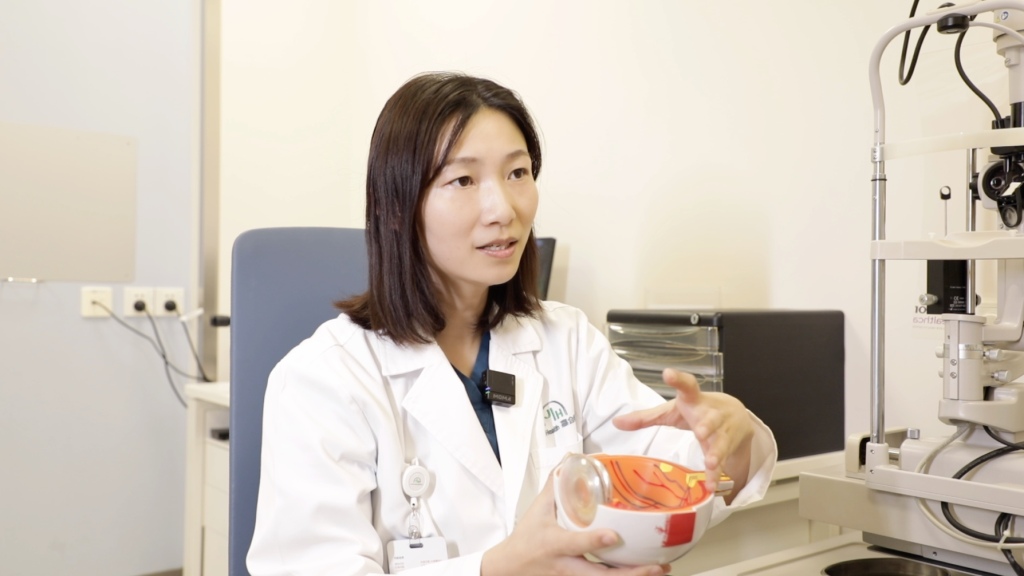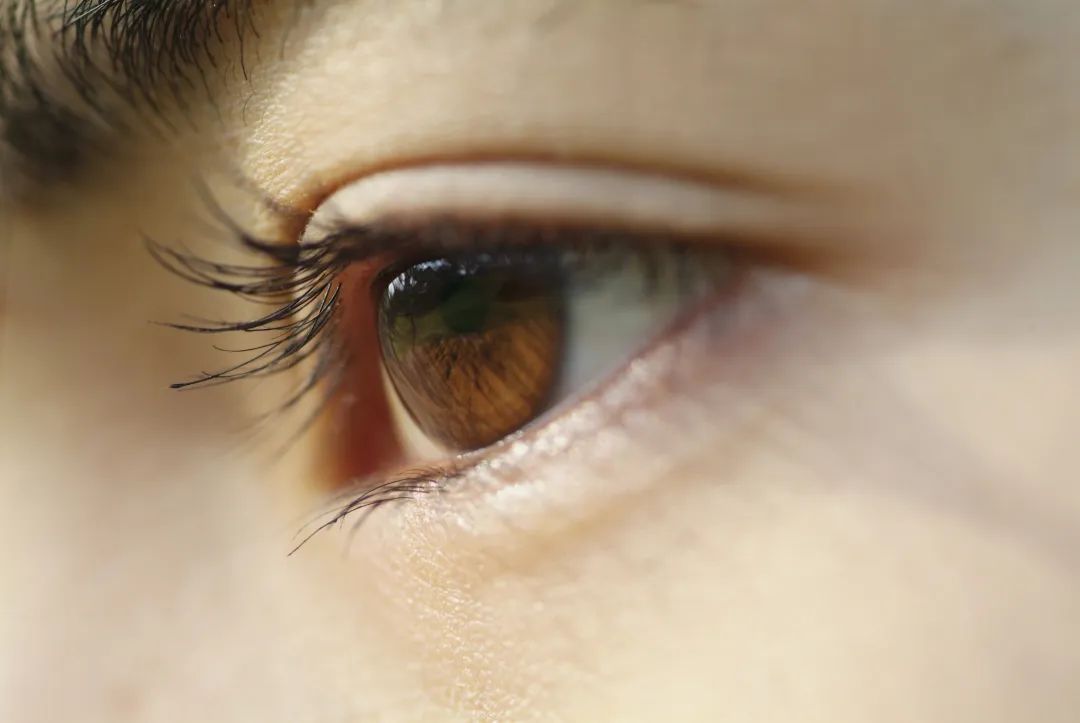Recently we've been spending far too much time in front of screens (as have our kids). So, we sat down with Dr. Xinyu Weng 翁欣瑜, an ophthalmologist at Jiahui Health, to get some tips on how to improve our screen-time habits and find out about the impact of screen time on our eyes.

First up, Dr. Xinyu Weng gave us some tips for reducing screen time:
Before using a screen, set an alarm for an hour’s time. This will remind you that you have been using a screen for an extended period and that you should take a break.
Reduce unnecessary screen time spent on social networks or entertainment.
Increase non-screen time (such as crafting, cooking, spending time with family and friends, or reading a book).
Do indoor or outdoor exercise, such as yoga, jogging, ball games, etc.
But let's face it, even if we implement all of these tips, most of us will still be spending more time in front of a screen than we should.
So here are some tips for making that unavoidable screen time less harmful to your eyes:
Blink your eyes as much as possible
There are glands in your eyes that secrete tears to keep the surface of the eye moist - this is necessary for the proper functioning of the eye. When you blink it coats the surface of your eyes with a protective layer of tears. Staring at a screen for long period reduces your rate of blinking and impacts on the production of tears.Take breaks
When using a computer, take a break every one to two hours, and let your eyes focus on items away from the computer screen for between 10 to 15 minutes. If you do stare at a screen continuously for up to one hour, lift your eyes every 20 minutes to look at an object in the distance for more than 10 seconds.Massage
After looking at the screen for an extended period, you can close your eyes and gently massage around the eye socket with your hands. This will increase blood circulation around the eyes.Adjust the positioning of your computer
Studies show that a correctly positioned computer screen will relax the neck muscles and minimize the area of the eyeball's surface exposed to air, which greatly reduces eyestrain. The ideal positioning of the computer screen is 50 to 65cm away from your seat, with the center of the screen about 20 degrees below eye level.Seek medical treatment in case of eye dryness and discomfort
If you have dry eye symptoms, a specialist hospital is recommended for diagnosis and treatment.
Now that we have tips to reduce and improve our screen time, what is the maximum amount of time adults should spend on screens each day?
There is no limit to how much time should be spent in front of screens. But too much screen time can cause numerous health problems.
A study a few years ago showed that the average American adult spends 11 hours a day in front of a screen. Shortly after the COVID-19 outbreak began, screen time among adults jumped to a staggering 19 hours per day!
A 2017 study showed that adults who spend more than six hours a day looking at screens are more likely to suffer from depression. Therefore, it is suggested that the shorter the time spent in front of a screen, the better.
Your recommended screen-time target should be:
No more than one hour of continuous screen time
Total screen time should not exceed eight hours per day
As for children:
No screen time for children under two years old
No more than two hours of screen time a day for older children
One of the consequences of excessive screen time is dry eye disease.
Dry Eye Disease
For those of us that don’t know, what is dry eye disease?
Dry eye disease is a chronic disease caused by an abnormal film of tears.
The symptoms include:
Dry eyes
Foreign body sensation in the eye
Burning sensation in the eye
Sticky secretions
High sensitivity to light
Sensitivity to external stimuli
Increased tears or congestion
Are there long-term consequences of dry eye disease?
Dry eye disease can cause the following:
Keratitis
An increased risk of eye infection
Red eyes
Increased secretions
The shedding of tears
Feelings of fatigue
Inability to concentrate
Each of these can cause discomfort and can affect normal work and life.
How can people prevent/combat dry eye disease?
Try to practice the following:
Reduce the amount of continuous screen time and take breaks, especially at night
Reduce the length of time spent wearing contact lenses and make sure to wear them correctly
Take care not to block the meibomian gland (i.e., the oil glands along the edge of the eyelids where the eyelashes are found) when applying eyeliner
If you experience eye discomfort, see an ophthalmologist as early as possible and get treatment in a timely manner.
What is the best treatment for dry eye disease?
There are many different forms of dry eye disease, and each of the respective treatments is different.
The most common treatment is eye drops, such as artificial tears or eye drops for chronic conjunctivitis.
Physical therapy can treat meibomian gland dysfunction (MGD), for example, a hot compress, massage, and fumigation.
More effective treatments include intense pulsed light (IPL) and meibomian gland heat pulsation therapy (Lipiflow).
In addition, improving your habits related to your eyes will also help greatly in alleviating the symptoms of dry eye disease.

For more information, to book an appointment, or for any other inquiries, scan the QR code:

Doctor Xinyu Weng 翁欣瑜

Dr. Xinyu Weng serves as an ophthalmologist at Jiahui Health. Dr. Weng has more than 10 years of clinical experience in ophthalmology. She has rich experience in the diagnosis and treatment of various common ophthalmic diseases.
She is proficient in cataract operations, vitreous injections, and other ocular surface surgeries including pterygium, and eyelid mass. She also masters fundus fluorescein angiography and laser treatments of the fundus, posterior cataract, and iris.
About Jiahui Health

Jiahui Health’s integrated healthcare system includes an international hospital, clinics, and a team of healthcare professionals from around the world to provide high-quality international healthcare that meets the various needs of people at all stages of life.
Located in Xuhui District, Shanghai, the 500-bed hospital opened in October 2017 and offers over 35 specialties. The teams are made up of physicians from renowned medical institutions at home and abroad, with 20% of the physicians coming from abroad, plus leading talents from domestic 3A hospitals.
Jiahui International Hospital collaborated with Massachusetts General Hospital (MGH), the oldest and largest teaching hospital of Harvard Medical School. Through this unique, long-term collaboration, Jiahui International Hospital has drawn upon MGH’s expertise and over 200 years of excellence in clinical care to deliver a patient-centered experience based on care, quality, and impact.
Jiahui International Hospital has three Centers of Excellence, namely Jiahui International Cancer Center, Jiahui Women’s Health Services, and Jiahui Orthopedics and Sports Medicine Center, as well as key disciplines such as pediatrics, cardiology, and general surgery.
[All images courtesy of Jiahui Health]





















0 User Comments